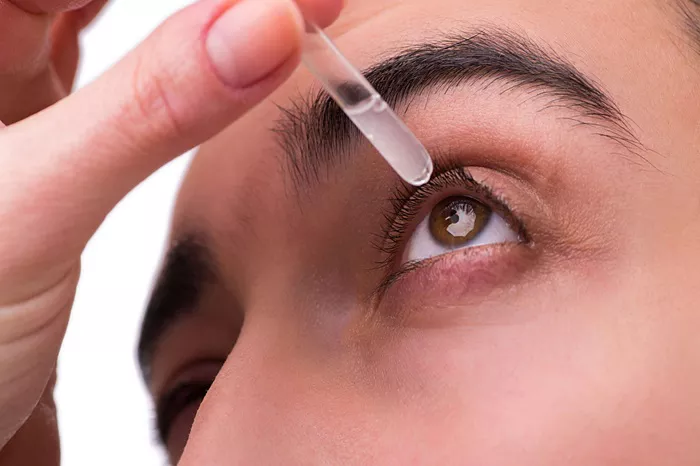The retina, a delicate and vital tissue located at the back of the eye, plays a crucial role in vision by capturing light and transmitting visual information to the brain. However, like any other part of the body, the retina is susceptible to injury and damage, which can sometimes result in the formation of scars. Retinal scars, characterized by the presence of fibrous tissue and loss of normal retinal architecture, can have significant implications for vision and overall eye health. In this article, we’ll explore the nature of retinal scars, discuss potential causes and consequences, and examine current research and treatment options for repairing these scars.
Understanding Retinal Scars: Anatomy and Function
Before delving into the repair possibilities for retinal scars, it’s essential to understand the structure and function of the retina:
Anatomy of the Retina: The retina is a thin, light-sensitive tissue that lines the inner surface of the eye. It consists of several layers of specialized cells, including photoreceptors (rods and cones), which capture light and convert it into electrical signals, and ganglion cells, which transmit these signals to the brain via the optic nerve.
Function of the Retina: The primary function of the retina is to process visual information and transmit it to the brain, where it is interpreted as images. The retina acts as the “film” of the eye, capturing light rays and converting them into neural impulses that are then relayed to the brain’s visual cortex for interpretation.
Level 1: Understanding Retinal Scars
Retinal scars, also known as retinal fibrosis or retinal gliosis, are areas of tissue damage and remodeling that occur in response to injury, inflammation, or disease. These scars can vary in size, shape, and location, depending on the underlying cause and severity of the injury. While some retinal scars may be asymptomatic and go unnoticed, others can cause vision loss and complications if they affect critical areas of the retina.
Level 2: Causes and Consequences of Retinal Scars
Several factors can contribute to the development of retinal scars, including:
Trauma: Direct trauma to the eye, such as blunt force injury or penetrating trauma, can damage the delicate structures of the retina and lead to scar formation. Traumatic retinal scars are often associated with conditions like retinal detachment or macular holes.
Disease: Certain ocular diseases, such as diabetic retinopathy, age-related macular degeneration (AMD), and retinitis pigmentosa, can cause progressive damage to the retina and result in the formation of scars. Inflammatory conditions like uveitis or infectious diseases like cytomegalovirus (CMV) retinitis can also lead to retinal scarring.
Surgery: Retinal surgery, including procedures such as vitrectomy or retinal laser therapy, can sometimes result in the formation of scar tissue as part of the healing process. While surgical interventions are often necessary to treat retinal conditions, they can occasionally lead to complications such as scarring.
Level 3: Can Retinal Scars Be Repaired?
The question of whether retinal scars can be repaired is a complex one, as it depends on various factors, including the size, location, and underlying cause of the scar. While some retinal scars may be amenable to treatment and repair, others may be irreversible and require management to prevent further vision loss. Let’s explore some potential treatment options and research developments in the field of retinal scar repair:
Medical Management: In cases where retinal scarring is secondary to an underlying disease or condition, such as diabetic retinopathy or AMD, medical management may be the primary approach. Treatment modalities may include medications (e.g., anti-VEGF injections), laser therapy, or surgical interventions aimed at addressing the underlying cause and preventing further scar formation.
Surgical Interventions: In certain cases, surgical interventions may be necessary to repair retinal scars or address associated complications. Procedures such as vitrectomy, membrane peeling, or retinal detachment repair may be performed to remove scar tissue, reposition the retina, or restore normal retinal architecture. These surgeries are typically performed by retinal specialists and require careful preoperative evaluation and postoperative care.
Emerging Therapies: Ongoing research in the field of ophthalmology has led to the development of innovative therapies aimed at promoting retinal regeneration and repair. Stem cell therapy, gene therapy, and regenerative medicine approaches hold promise for restoring damaged retinal tissue and reversing the effects of scarring. While these therapies are still in the experimental stages, they represent exciting avenues for future treatment of retinal disorders.
Optical Aids and Rehabilitation: In cases where vision loss is irreversible due to extensive retinal scarring, visual aids and rehabilitation techniques can help improve functional vision and quality of life. Devices such as magnifiers, telescopes, and low-vision aids can assist individuals in performing daily tasks and activities despite visual impairment.
Conclusion: Navigating the Landscape of Retinal Scar Repair
In conclusion, while retinal scars present significant challenges in the field of ophthalmology, advancements in research and treatment options offer hope for individuals affected by these conditions. While not all retinal scars may be amenable to repair, various medical, surgical, and emerging therapies hold promise for improving vision and preserving ocular health.
As our understanding of retinal physiology and pathology continues to evolve, so too will our ability to develop innovative approaches for repairing retinal scars and restoring vision. By embracing a multidisciplinary approach that combines medical expertise, technological innovation, and patient-centered care, we can work towards improving outcomes and enhancing the quality of life for individuals living with retinal disorders.
[inline_related_posts title=”You Might Be Interested In” title_align=”left” style=”list” number=”6″ align=”none” ids=”6169,6165,5959″ by=”categories” orderby=”rand” order=”DESC” hide_thumb=”no” thumb_right=”no” views=”no” date=”yes” grid_columns=”2″ post_type=”” tax=””]
































